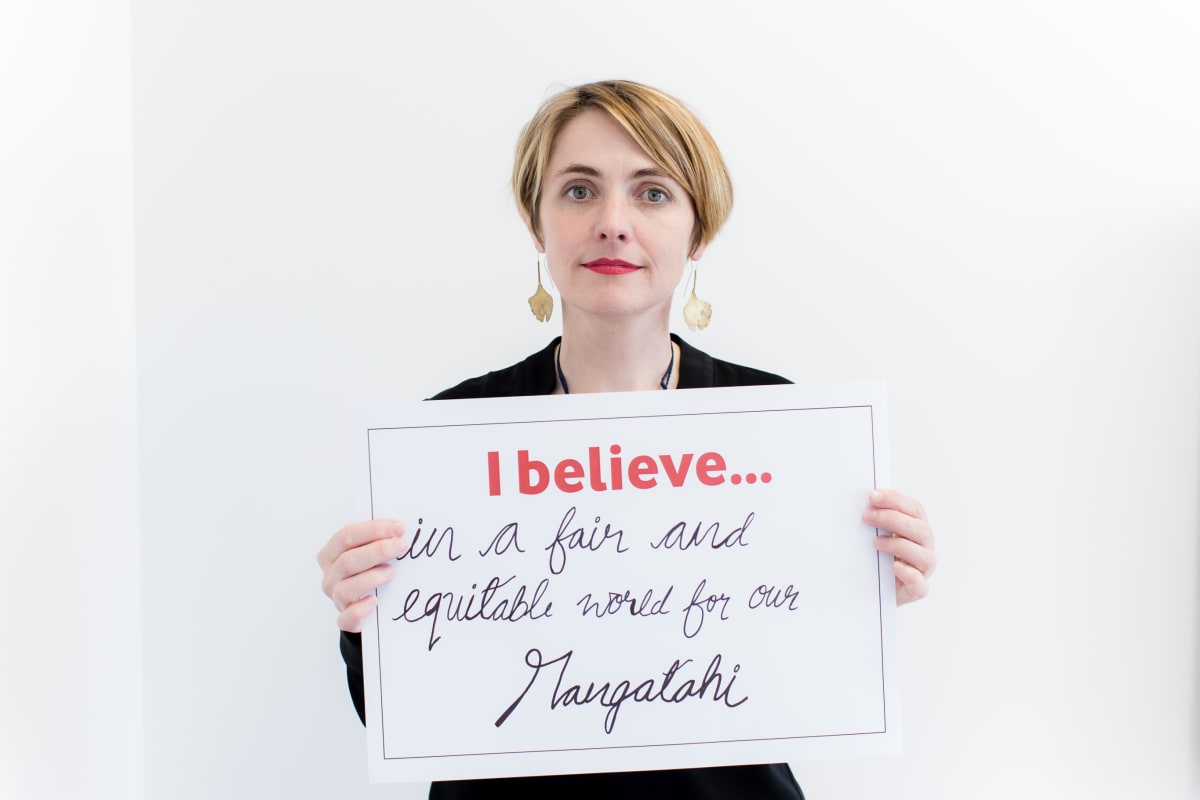Aotearoa will Thrive if our Rangatahi Do Too
Content partnership
Experiencing a period of debilitating poverty taught Lani Evans powerful lessons about helping our young people
New Zealand should be a place where all young people have access to the resources and opportunities they need to thrive, where rangatahi can make decisions and shape their own futures.
Sadly right now, that’s not the reality.
More than 20 percent of young people in Aotearoa are over-burdened and under-resourced. These young people are being locked out of opportunity by systems and experiences beyond their control, and face ongoing, complex challenges to their health, their education, and their relationships.
About 10 years ago, I ran headlong into some of these challenges. I was the only paid employee at a small charity, on a salary that stretched to just above minimum wage. I loved the work, and the long hours. It was challenging and meaningful, and, even though the pay was poor, I was doing okay.
And then my mum got sick. Her mental health deteriorated and I found myself having to fly to Brisbane every month to care for her, and to work out how to navigate Australia’s complex mental health system.
Suddenly all my money was gone. The travel costs methodically ate through my cash and my savings and by the time I’d paid rent and bills, and brought some very basic food, there was nothing left. And I don’t mean that metaphorically. I mean I had to walk an hour each way to work because I couldn’t afford the bus, and when I got a urinary tract infection I couldn’t afford the three bucks for a sachet of Ural, the powder I needed to treat it. The UTI, untreated, became a kidney infection. I couldn’t afford to go to the doctor and the only thing that made me feel better was sitting in a hot bath. But when I ran the bath I was thinking about how I’d pay the hot water bill.
It was a bleak experience, and a clear demonstration of how fragile my situation was, how easily a couple of bumps could derail my life and set it on a downward spiral.

This memory is rolling around in my mind as the Vodafone Foundation launches “Thriving Rangatahi” a paper on creating a more equitable Aotearoa for our young people. Based on data, literature reviews and conversations with people at the coalface, the paper points to a number of practical and philosophical solutions to the challenges our young people face.
Start your day with
a curation of our top
stories in your inbox
Start your day with a curation of
our top stories in your inbox
Access to adequate income is a key finding across all of the research.
In New Zealand we’ve had a long period of low wages and expensive housing. Consecutive governments have failed to increase benefit levels to keep up with the cost of living and have prioritised policies that support those who are already doing okay. This combination of choices has left us in a precarious position, with growing levels of inequality and poverty exacerbated by Covid-19.
None of us want to see over-burdened and under-resourced families struggling to provide for their children. No-one wants to hear stories of kids sleeping in clothing bins, or going without food.
It doesn’t have to be this way. We know what will work to build a better future.
I believe that we need to increase benefits and raise the minimum wage, that there are policy settings that need to change. There are changes that can be made outside of government too.
Businesses can choose to pay their employees well, to offer wages and salaries that enable their staff to adequately provide for themselves and their whānau. They can provide ongoing opportunities to learn and develop, so that the lowest paid workers can grow their earning capability over time.
As individuals we can use our voices to advocate. We can make it clear to decision-makers that we want a future in which all rangatahi, tamariki and whānau have the opportunity to thrive. We can ask them to release the pressure on families by lifting income support, and ensuring safe and fair working environments for everyone. We can shift towards the values that lie at the heart of Aotearoa – justice and compassion.
The Vodafone Foundation has a vision of an Aotearoa New Zealand where all young people have the resources and opportunities they need to thrive. We want all rangatahi to have a sense of agency. We want to see each and every young person living a life they value – with a bright future ahead.
To achieve that vision we need young people to grow up with parents and caregivers who have enough. Whānau who can afford to buy Ural and run the bath without anxiety, who aren’t choosing between peanut butter and a bus ride, or bread and broadband.
Poverty for me was situational. It was temporary. I could extract myself from the situation because of my privilege, my education and my middle class upbringing. That’s not true for everyone, particularly those who experience intergenerational poverty. We need to construct a society that removes barriers, provides support for those who are struggling and gives us all an equal shot at living a good life.
We know what works. I know that a more equitable and thriving Aotearoa is possible – and that it will enable our rangatahi to thrive now, and into the future. But only if we all play our part.
Vodafone Aotearoa is a foundation supporter of Newsroom
